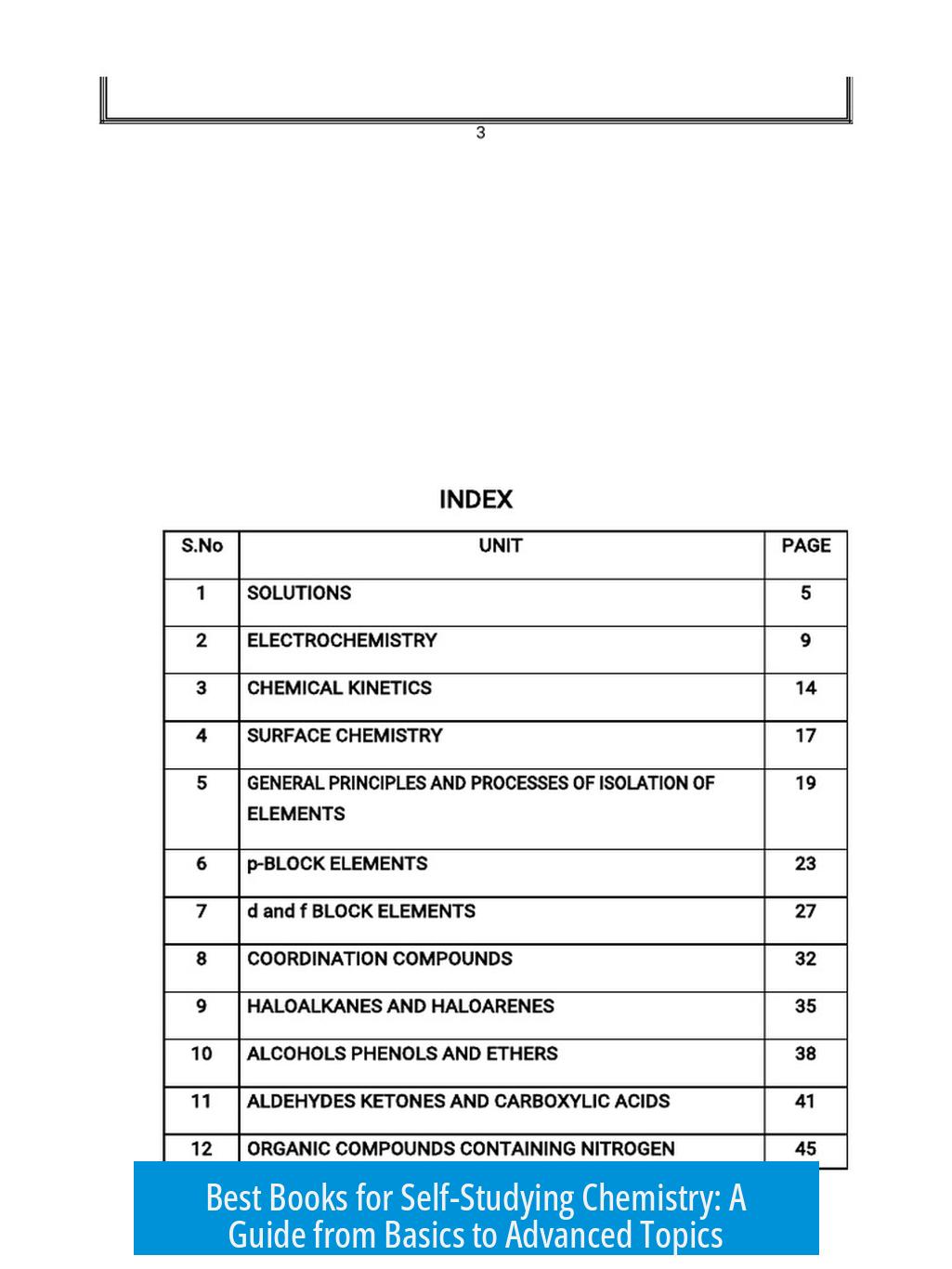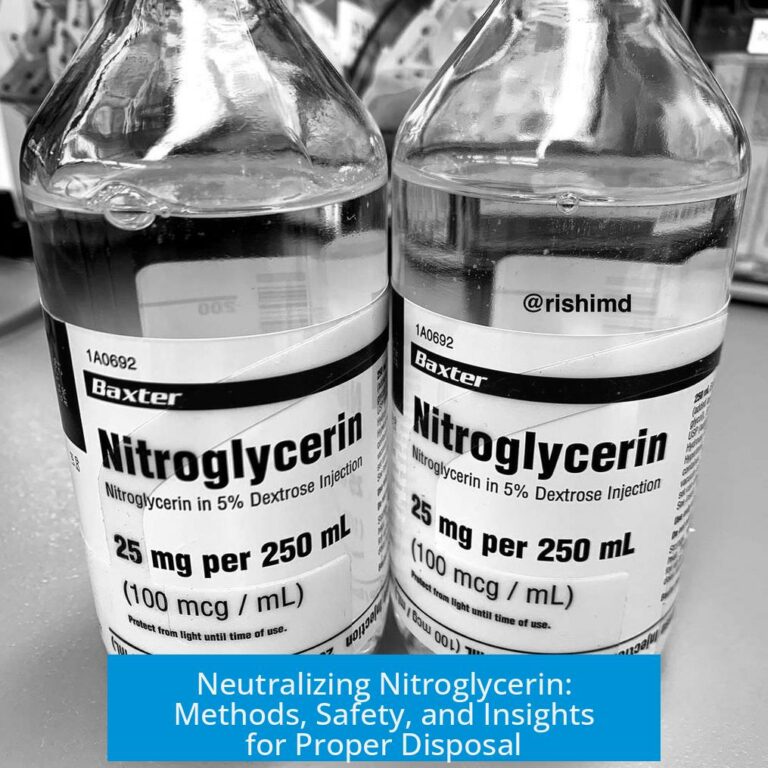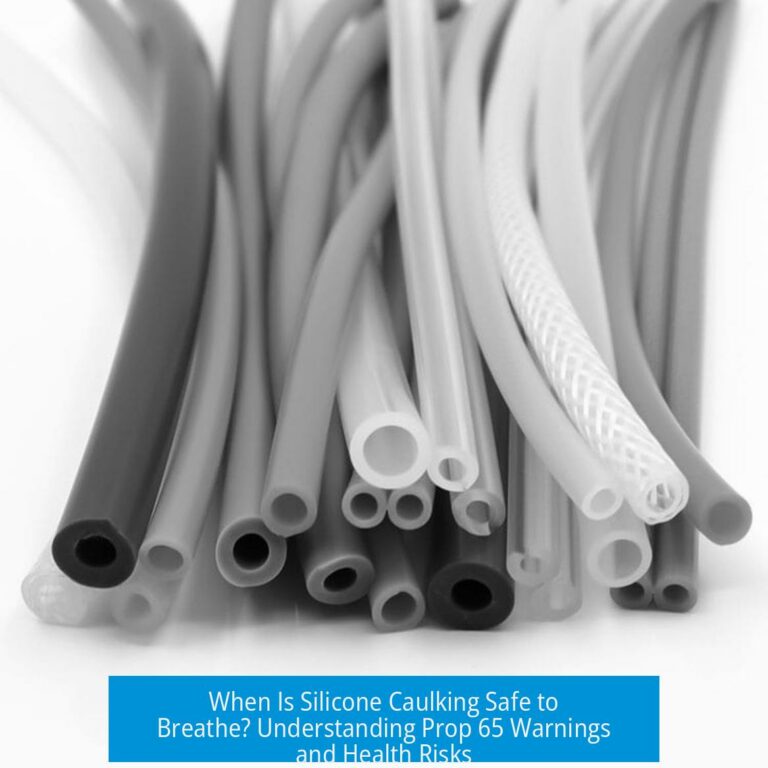Best Books for Self-Studying Chemistry: Basics to Advanced
Self-studying chemistry requires the right resources, starting with foundational math up to advanced specialized topics. A strong grasp of algebra is critical since chemistry relies heavily on algebraic concepts. Using a college algebra textbook as a starting point helps understand chemical processes theoretically and interpret experimental results accurately.
Foundational Math
- Algebra textbooks (used college-level) are essential for initial preparation.
- Understanding algebra enables independent problem-solving throughout chemistry.
General Chemistry
Begin with accessible resources that build core concepts and advance gradually.
- CK-12 program: A free, online resource offering a comprehensive introduction with quizzes. Ideal for beginners.
- Raymond Chang – Chemistry: A highly recommended text that starts from basics and is well-suited for undergraduates.
- Brown, LeMay & Bursten – Chemistry: The Central Science: Suitable after mastering the basics, this text deepens understanding.
- Petrucci’s Chemistry textbook: Another well-regarded option for progressing general chemistry knowledge.
Organic Chemistry
Once foundational chemistry is solid, move to organic chemistry.
- Clayden, Greeves, Warren, and Wothers – Organic Chemistry: Known as a comprehensive, detailed guide. First editions are preferred for self-study.
Specialized and Advanced Chemistry
- Quantum Chemistry: Recommended only if algebra and calculus skills are strong.
- Polymer Chemistry: Use free resources like Macrogalleria for accessible learning.
- Practical Chemistry: Manuals such as the Golden Book provide hands-on experience.
- ACS Study Guides: Effective for testing and reinforcing knowledge across chemistry fields.
Online and Free Platforms
Use these to supplement textbook learning.
- Khan Academy: Offers free, well-structured videos and exercises for chemistry basics and beyond.
- Coursera: Access audit options of university courses for specialized chemistry topics.
- CK-12: Provides quizzes and interactive content ideal for self-paced learning.
Effective Study Approach
- Start with algebra basics.
- Progress through general chemistry texts and interactive online materials.
- Advance to organic chemistry using Clayden’s book.
- Explore specialized topics once math foundations are solid.
- Regularly test knowledge with ACS Study Guides.
Key Takeaways
- Begin with a strong algebra foundation.
- Use CK-12 and Khan Academy to grasp general chemistry concepts.
- Transition to respected textbooks like Chang’s and Chemistry: The Central Science.
- For organic chemistry, Clayden’s text is the best self-study resource.
- Advance to specialized subjects only after mastering relevant math.
- Use ACS Study Guides to monitor progress effectively.
What math background is necessary before starting chemistry self-study?
Algebra is essential. Understanding algebra helps you grasp chemical processes and results. Many chemistry topics rely on algebra, so start with a college algebra textbook to build a strong base.
Which textbooks are best for learning general chemistry from basics to intermediate?
Begin with the CK-12 program for a free online start. Then use textbooks like Raymond Chang’s Chemistry and Chemistry: The Central Science by Brown, LeMay, & Bursten. Petrucci’s book is also a solid choice for progressing further.
What are good resources for studying organic chemistry independently?
The book by Clayden, Greeves, Warren, and Wothers is highly recommended for organic chemistry. It covers the subject thoroughly. First editions can be easier to follow and usually cost less if bought second-hand.
How can I explore advanced chemistry topics on my own?
Before tackling quantum chemistry, strengthen your math skills. Use ACS study guides to check your knowledge. For specialized areas, try Macrogalleria for polymer chemistry or the Golden book for practical experiments.
Are there free online platforms to support self-study in chemistry?
Yes. Khan Academy offers quality lessons. CK-12 provides a structured path with quizzes. Coursera allows auditing chemistry courses for free. Macrogalleria focuses on polymer chemistry and is free too.





Leave a Comment